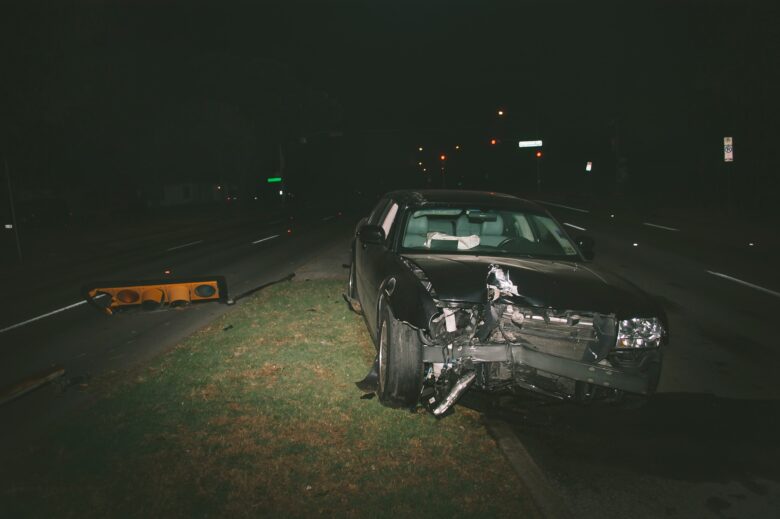Introduction
The Applicant was the seat-belted driver of a vehicle that struck a median, spun out of control, struck another vehicle and came to rest after hitting the guardrail in July, 2010. The Applicant submitted an application for catastrophic determination, which was denied by the insurer.
There was only one issue before the License Appeal Tribunal: did the Applicant sustain a catastrophic impairment within the meaning of the Statutory Accident Benefits Schedule (SABS) as a result of the accident?
The Applicant had applied for catastrophic determination on the basis that, on the balance of probabilities and as a result of the accident, she met the criteria outlined in section 2(1.2)(g) of the SABS, which defines catastrophic impairment as follows: “an impairment that, in accordance with the American Medical Association’s Guides to the Evaluation of Permanent Impairment, 4th edition, 1993 [the “Guides”], results in a class 4 impairment (marked impairment) or class 5 impairment (extreme impairment) due to mental or behavioural disorder.”
The term “impairment” is defined by the SABS as “a loss or abnormality of a psychological, physiological or anatomical structure or function”, and is classified based on how it affects a person’s useful daily functioning in four domains: Activities of Daily Living, Social Functioning, Concentration, and Adaptation. Chapter 14 of the Guides further classifies each of these domains into a scale of five categories, ranging from no impairment to extreme impairment. Each category signifies a different level of functioning, and it is the specific level of functioning that is important, and not the category label itself.
Adaptation is defined in the Guides as the repeated failure to adapt to stressful circumstances such that the Applicant “may withdraw from the situation or experience exacerbation of signs and symptoms of mental disorder; that is, decompensate or have difficulty maintaining activities of daily living, continuing social relationships, and completing tasks”. The analysis of this domain focuses on the psychological stress tolerance of the Applicant, and it impacts the ability of the Applicant to function across all activity domains.
Positions of the Parties
The Applicant argued that she was entitled to a finding of catastrophic impairment on Criterion 8, based in part on the opinion of Dr. Becker, psychologist, who had concluded that she suffered a Class 4: Marked Impairment on the Adaptation Domain, meaning her impairment levels significantly impeded useful functioning.
The Respondent took the position that the Applicant was not entitled to a catastrophic impairment designation and relied on the opinion of Dr. Chandrasena, psychiatrist, who concluded that the Applicant sustained a Class 2: Mild Impairment in the Adaptation domain, meaning her impairment levels were compatible with most functioning.
Analysis
The Court of Appeal in Pastore outlined the following three-step approach that should be taken when deciding the issue of catastrophic impairment due to mental or behavioural disorders:
- Did the accident cause the Applicant to suffer a mental or behavioural disorder?
- If so, what is the impact of the mental or behavioural disorder on the Applicant’s life?
- In light of the impact, what is the level of impairment?
(1) Did the Accident Cause the Applicant to Suffer a Mental or Behavioural Disorder?
Based on the evidence before the Tribunal, it was clear that the parties agreed that the Applicant had suffered a mental and/or behavioural disorder as a result of the accident. There had been differences in the diagnoses amongst the medical practitioners, however, it was clear that both the Applicant and the Respondent’s practitioners agreed that the Applicant had significant emotional difficulty in adapting to and coping with her many physical and psychological symptoms following the collision.
(2) What is the Impact of the Mental or Behavioural Disorder on the Applicant’s Life?
The Adjudicator concluded that the accident had resulted a mental or behavioural disorder that negatively impacted the Applicant’s daily functioning. When making this determination, he looked to the evidence before him and examined and compared her pre- and post-accident functioning in various aspects of her daily life, including her employment, activities of daily living, personal care, housekeeping and home maintenance, and her relationships.
(3) What is the Level of Impairment in Light of the Impact of the Mental or Behavioural Disorder?
The bulk of the Adjudicator’s decision focused on the level of impairment suffered by the Applicant within the context of the Adaptation domain. Ultimately, the Adjudicator’s opinion came down to an assessment of credibility when it came to assessing the level of impairment suffered by the Applicant.
The Applicant had been assessed over the course of two days by Dr. Becker as part of a multidisciplinary assessment, who opined that the Applicant had sustained a Class 4: Marked Impairment in the Adaptation domain as she struggled to participate in activities of daily living, engage in relationships and initiate or participate in tasks due to her psychological impairments. Dr. Becker noted that the Applicant demonstrated a diminished capability to cope with certain stressors and that she engaged in significant avoidance behaviours in order to manage her pain and anxiety.
Dr. Becker’s opinion was also based on the reports of Ms. Kara, occupational therapist, who had also performed a two-day evaluation of the Applicant. Ms. Kara highlighted the Applicant’s inability to cope with simple demands. She noted that when placed in stress-induced situations, the Applicant’s emotions were heightened to the point that she was unable to complete the tasks. Ms. Kara also noted that the Applicant had poor standing tolerance, an inability to bend or crouch, and significant discomfort when sitting for long periods. She also demonstrated fatigue and became overwhelmed during the assessment.
Dr. Becker concluded that the Applicant’s reduced stress tolerance, use of withdrawal/avoidance strategies, and tendency to experience an exacerbation of distress when faced with stressors were evidence of Class 4: Marked Impairment under the Adaptation domain as these impeded useful functioning.
The Applicant underwent a Psychiatric Insurer’s Examination with Dr. Chandrasena as part of the Respondent’s multidisciplinary assessment. In direct contrast to the findings of Dr. Becker, Dr. Chandrasena noted that the Applicant was able to focus on the interview and that her psychiatric symptomology had improved from post-accident and varied from mild to moderate. He noted that the Applicant was not visibly depressed, occasionally tearful and exhibited no anxiety. He noted that her insomnia was due to physical pain, loss of work, and preoccupation with physical health concerns. Dr. Chandrasena noted that the Applicant had memories of the accident daily, which worsened when she was anxious. Pain was noted to contribute to her social avoidance and she had been endorsing catastrophic thinking as a result of the accident. Dr. Chandrasena ultimately concluded that the Applicant suffered a Class 2: Mild Impairment in the Adaptation domain.
Mr. Morgan performed an Insurer’s Occupational Therapy In-Home Examination as part of the multidisciplinary assessment, who noted that the Applicant demonstrated visible signs of anxiety and emotional distress. She showed signs of psycho-emotional distress that he noted could limit her ability to participate in daily tasks required increased effort. Following his assessment, Mr. Morgan found that the Applicant had difficulty with problem solving and required prompting to continue activities that were overwhelming. She had also become emotional on multiple occasions and she continued to exhibit ongoing distress throughout the assessment. Mr. Morgan concluded that the Applicant was considerably compromised in her ability to engage in competitive paid employment due to her anxiety.
Adjudicator Gosio found that the Applicant met her onus in establishing that she had suffered a Class 4: Marked Impairment in the Adaptation domain, and that therefore, she meets the threshold for catastrophic impairment.
The Adjudicator commented that credibility played an important role in this matter because pain was central to the Applicant’s claim. He noted that he found the Applicant’s evidence to be credible and compelling, and relied on her evidence regarding her physical and psychological impairments in coming to his decision. It was noted that her evidence demonstrated that she constantly thought and worried about exacerbating her pain, had poor coping techniques, tended to become easily overwhelmed, had disturbed sleep and was fatigued. Adjudicator Gosio commented that her evidence was fundamental to his finding that the Applicant’s impairment level significantly impeded her useful functioning within the Adaptation domain.
The Adjudicator also commented that he preferred the evidence of Dr. Becker over that of Dr. Chandrasena, given that Dr. Becker had conducted a thorough and comprehensive review and analysis. He found Dr. Chandrasena’s analysis to be cursory in nature and failed to provide an adequate explanation as to how he had reached his conclusion that the Applicant had suffered a Class 2: Mild Impairment. Further, Dr. Chandrasena’s draft IE CAT report (which had been ordered produced) contained findings of Class 3: Moderate and Class 4: Marked Impairment in the adaptation domain, despite the finalized report concluding that the Applicant had a Class 2: Mild Impairment. This was a significant discrepancy that Adjudicator Gosio had taken into account when evaluating Dr. Chandrasena’s credibility.
The Adjudicator, weighing the evidence before him, found that the Applicant’s condition undermined her ability to cope and adjust, leading to an increased perception of pain and increased functional decompensation, leading to a pronounced level of disability. As such, he found that the Applicant’s functioning in the area of Adaptation was significantly impeded and that she had been unable to return to the independence she enjoyed previously, making it difficult for her to maintain her activities of daily living, continue social relationships and complete tasks. As such, the Adjudicator found that the Applicant was more appropriately assessed at a Class 4: Marked Impairment, since the impairment levels significantly impeded useful functioning.
Conclusions
Adjudicator Gosio ultimately concluded that the severity of the Applicant’s level of impairment with respect to the Adaptation domain as set out in the Guides constitutes a catastrophic impairment pursuant to section 3(2)(f) of the SABS.
This decision serves as an important reminder that when it comes to making an assessment as to whether the Applicant has suffered a catastrophic impairment as defined by section 2(1.2)(g) of the SABS, it is an assessment of level of functioning of the Applicant that is important, and not just the category itself. As such, it is important for Applicants to ensure that a comprehensive and holistic assessment of their level of functioning is before the Tribunal when it comes to disputing denials of catastrophic impairment based on Criterion 8.














